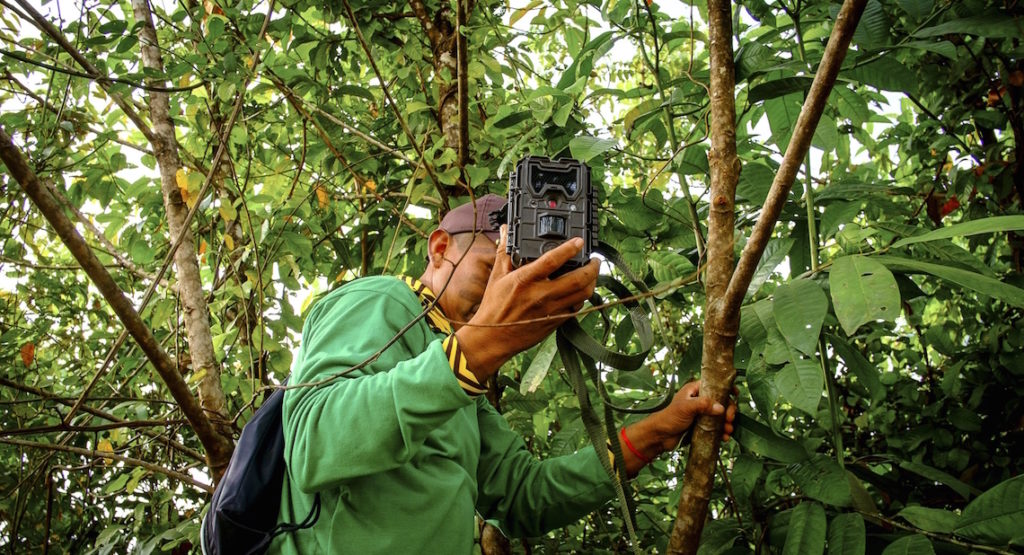How Illegal Logging is Coming to a Halt in the Amazon: Spies, Technology, or Both?

It is no secret that the trade of illegally logged timber is on the rise, especially in the Amazon, but does that mean that it is easy to do? Not necessarily. With the forests diminishing the Ka’apor people started setting up surveillance cameras throughout Reserva Alto Turiacu, in the Amazonian part of Maranhao, Brazil, in hopes to track and catch tree thieves.
Most have no idea the violence, threats, and even deaths that occur surrounding the illegal trade of wood when they go furniture shopping. They also don’t know how technology can help save those who suffer from the logging industry. There is a technology initiative that has been created by Greenpeace, activists who strive to help vulnerable communities in need of environmental assistance. The NGO provided training, funded cameras, trackers, computers, and hard drives. You would think, “Okay, cool. They can put the cameras up and track the illegal logging. Problem Solved!” This would be great, although, it is not that simple. On this expedition, the natives, journalists, volunteers had to wake at 3a.m. to travel to the small village. Upon arrival, the group knew they were in the middle of a war zone.
In September 2014, tree thieves were caught in the act of tree removal and were reprimanded by the indigenous people, who have been protecting the forest on their own for quite awhile. In April of this year, an indigenous chief was killed, and a little after that two young Native Brazilians were shot at while riding motorcycles throughout the reservation. The Ka’apor people deem that illegal loggers were at fault for these crimes.
The project is still in the test phase. Monitoring cannot happen in real-time. The cameras used contain an 8GB memory cards and also have an infrared sensor which work in two ways: capturing color combinations or movement, and they only record when something moves (truck, animal, person, and even leaves falling). These special cameras are resistant to extreme temperatures. The videos capture 10 seconds of movement, just enough to catch a truck’s license plate.
According to satellite images analyzed by Greenpeace, eight percent of the 530,000 acres belonging to the Ka’por have already been logged. FUNAI (Brazil’s National Indian Foundation) considers the reservation to be the last piece of greenery on Maranhao, and although it justifies intensifying its participation on inspection efforts in the region, the organization is not well regarded by the Ka’por.
The world’s population relies on wood. Furniture, homes, heck even guitars, but does that mean we should take what we want when we want without any repercussions? Absolutely not. Wood can be sourced ethically and in an environmentally friendly way. By doing so, it sustains the environment, so when we need wood, there will be trees available to do so. At Bedell Guitars wood is sourced ethically, instruments are created to honor that specific tree’s sound. Why can’t more companies operate this way? It’s simple, they CAN. Be part of the movement. Doing the right thing never sounded better.
To read more about this journey head over to the Motherboard.


